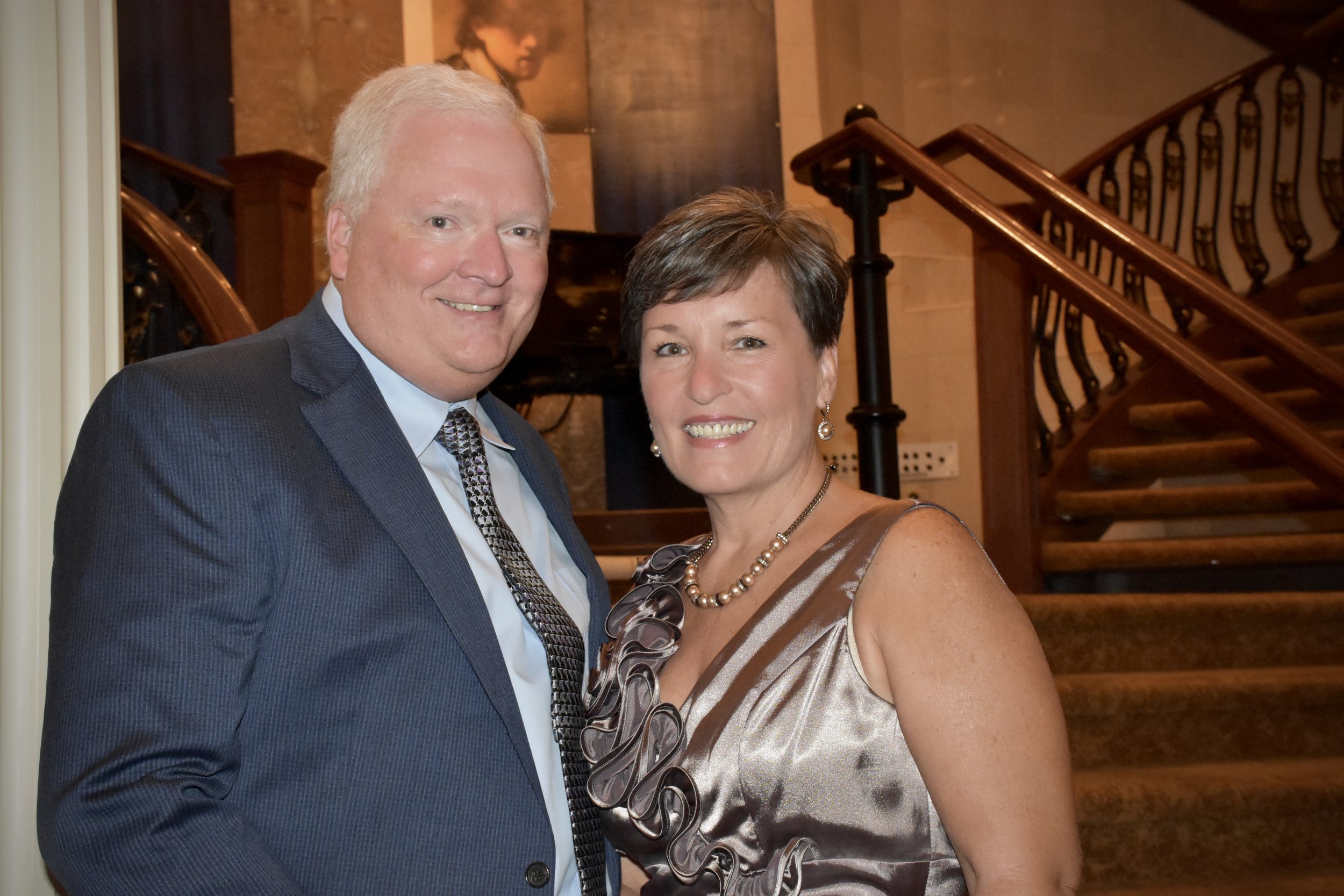Estate Planning
what is it?
It all begins with your ideas concerning the stewardship of your life savings.
If you’re like most of our clients, when you look to the future you want to:
Control Your Assets. You want to maintain control over your hard-earned savings. And if the day comes when you can no longer be in charge, you want a person you trust to follow your instructions.
Avoid Burdening Your Family. You want to remain independent as long as your health and resources allow.
Decide on Distribution. When you no longer need it, you want to leave what you want, to whom you want, the way you want.
All of this while keeping attorney fees to a minimum and reducing or eliminating income, capital gain, and death taxes.
Designing solutions for you
Estate planning at Breshears Law begins with a conversation. A conversation our attorney guides that, based on his forty-plus years of experience, enables you to easily tell your story and define:
Your highest priorities
Your greatest needs
The needs of your loved ones
What you want your legacy to be
At the end of that conversation, our experienced attorney will explain in simple terms the legal plans that will honor your priorities, meet your needs and those of your loved ones, and result in the legacy you want. He will put an exact price on each option and quantify the value each option represents.
You can then make an informed choice of the plan you prefer.
Frequently asked questions
-
If you own (or you’re buying) a home, have some savings or investments, then yes, you have an estate.
Your estate consist of the property in which you own an interest. Whatever the type of asset, and whether it is your separate or community property. Typical examples of estate assets include:
Cash. Either in hand or on deposit in a bank or brokerage accounts.
Real Estate. Includes your home, a vacation home, vacant land, rental or commercial property, and/or oil, gas and other minerals.
Investments. Brokerage or investment accounts that hold stocks, bonds, mutual funds, or other marketable securities.
Motor Vehicles. Cars, trucks, RVs, ATVs, boats or jet skis, airplanes, or other motorized equipment.
Retirement Plans. IRA, 401(k), 403(b) and other tax-deferred programs.
Insurance and Annuities. Life insurance, long-term care policies, health insurance, and annuities.
Tangible Personal Property. The contents of your home(s), decor, art, firearms, equipment, clothing, jewelry and other personal effects.
Digital Assets. Online accounts, from banking or brokerage information to social media, are assets you can and should control in your estate plan.
Business Interests. Any interest you own in a business, whether it is a sole proprietorship, LLC, corporation, or partnership.
-
Simply put, a trust is a legally recognized relationship involving three distinct roles. These roles are:
The RULE MAKER(s). As its creator (the grantor), you make the rules for how assets held in your trust will be held, managed, and ultimately distributed.
The RULE FOLLOWER. The person(s) charged with carrying out your instructions (called the trustee).
The PERSONS YOU INTEND TO BENEFIT FROM YOUR TRUST. Your beneficiaries, beginning with you (and your spouse, if you are married).
As the creator of the trust, you will always be the rule maker/grantor, you will also be the initial trustee or rule follower, and you will be the initial beneficiary of the trust.
By establishing the trust and defining in advance who will be in charge and who can benefit, no matter what your future holds, you have exercised your discretion to replace the state’s plan for your family. Your trust plan assures your assets will be managed the way you want by people you trust, EVEN WHEN YOU CAN NO LONGER CARE FOR THEM YOURSELF.
-
This could be a long list, but here are the greatest benefits:
Your trust puts you in complete control, now and in the future.
Your rules, not the state’s rules, will govern how your property is held and eventually distributed.
Your trust frees you and your loved ones from the probate system. Your rules control. The people you name as successor trustees after you are automatically qualified - not because a probate judge appointed them - but because you appointed them.
Your trust avoids “living probate” - Guardianship - by ensuring that your successor trustee manages your assets if you are disabled. In guardianship, a probate judge is in charge of your assets. Your court-appointed guardian reports to that judge.
By holding your assets in your trust, what happens to you in the future (disability or death) does not happen to your assets. People can become disabled, but trusts do not. People die. Trusts live on. No matter what happens to you, nothing happens to your property. It is still controlled by the rules in your trust agreement.
Your trust is private. Assets in your trust will pass privately. No probate required and no permission from a judge needed.
Your trust is more cost-effective. By removing your assets from the rising cost and delays inherent in the probate system, your trust will see to it that more of your hard-earned resources reach your beneficiaries, and that they benefit without delay.
All because you said so.
-
EFFECTIVE DATE. Trusts are effective the moment you sign them. They can hold title to your assets and the rules governing those assets are in effect immediately. Wills, on the other hand, are not effective when you sign them. in fact, a Will is not effective during your lifetime. A Will is not effective until after your death. And even then, it isn’t effective until a probate judge rules that the Will is valid. ONLY THEN is an executor appointed to carry out the instructions in your Will.
PUBLIC OR PRIVATE. Wills tie your loved ones to the probate, and like any lawsuit, all information associated with probate cases is available to the public. Trusts are private and do not require probate. They protect the privacy of your personal and financial information.
ASSET PROTECTION. A Will offers no asset protection to its maker. A properly drafted Trust, on the other hand, can provide asset protection for the maker, including protection from lawsuits, divorce, disability, or even from the government where qualification for Medicaid benefits is concerned.
ESTATE TAXATION. No Will can save estate taxes. An irrevocable Trust, however, can reduce or eliminate estate taxes.
PROBATE / NO PROBATE. Wills are subject to the delay, the cost, and the loss of discretion to the probate legal system. Trusts, on the other hand, offer freedom from probate and keep all of the discretion over who serves as trustee and who benefits to you. Trusts offer you maximum control over your future.
No probate after death, but just as importantly, no probate during your lifetime. If you are disabled during your lifetime, with assets held in your name, management of your assets may be turned over to a probate judge in a Guardianship case. There is no greater threat to your wealth than the enormous financial cost of guardianship. In guardianship, a probate judge is in charge of your assets. The cost of probating a Will pales in comparison with the cost of a guardianship, in which the spending continues as long as your disability continues.
-
The cost of any good or service is a reflection of the value it brings. In the estate planning world, the simple direct answer to the question is “it depends”.
The price varies with the complexity of the plan you choose. What we can assure you about price includes the following:
At our firm, you will know the exact, fixed price of the plan you choose before you are obligated to retain us. No hourly billing that results in uncertainty about the ultimate cost. All of our fees are fixed and disclosed at the time you decide whether to hire us as your planning counsel.
The greatest cost of allis the choice to do nothing. Failing to plan leaves your property and your family tied to the most expensive probate process of all. Probate without a Will is by far the most expensive process of all.
The cost of any estate plan is offset by the resulting value it brings.
THERE IS NO VALUE TO OFFSET THE COST OF DOING NOTHING. Doing nothing is the most expensive choice of all.
-
We make it easy for you. But first we need to understand that trust planning is based on legal principles involving what we call ownership.
There are two forms of “ownership” the law recognizes:
LEGAL TITLE.
The name on the title to an asset.BENEFICIAL TITLE.
When we think of ownership, the person we consider the owner is actually the person who benefits from an asset.
Ask yourself this.
Would you rather. . .
(a) have your name on the title to property, without regard to any right to the use or enjoyment of the property? Or. . .
(b) know the property will always be used for your benefit, no matter whose name is on the title?
The answer is (b). The reason? Beneficial ownership is real ownership.
We help you transfer legal title to your assets from yourself (as an individual) to your trustee, the rule follower. You will retain beneficial title to your nest egg, as the beneficiary of your trust for as long as you live.
By creating these roles now, while you are healthy, you also decide who will occupy those roles if and when you are no longer able. For example, you will almost always be the initial trustee, holding legal title as a fiduciary for yourself.
If you should ever be unable to continue as your own trustee, you decide who you would trust to take over for you as trustee. But as long as you live, you will remain the beneficiary (the real owner) of your trust assets.
Our role as estate planning counsel begins as your guide.
We bring to the planning process our decades of experience and training. We raise issues and ask questions, guiding you around common mistakes people without counsel almost always make. We listen to your responses and provide helpful guidance.Then we become your scribe. We help create the rule book that contains your instructions and your decisions about who will later serve as trustees, and who will ultimately benefit from your trust. That rule book is called a Trust Agreement.
Your trust agreement replaces every aspect of the state’s plan for your future and the distribution of your assets. It provides the guidance and instructions your successors will need to hold, administer, and distribute the trust assets.





